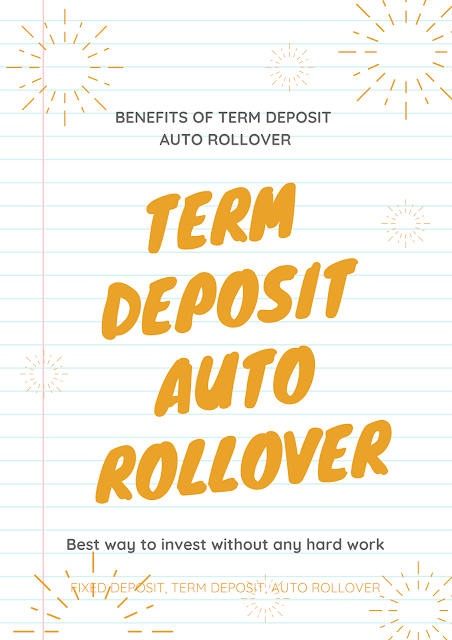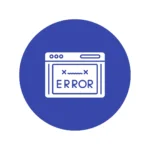Maintaining a term deposit account, or, you may say, a fixed deposit, in a bank is a pretty simple task. Nowadays, without visiting a bank, you can open directly through your internet banking. All is done digitally, including opening and closing your account.
At times, when your fixed deposit matures, you do not get the proceeds; instead, it is extended for another term of the same tenor. It happens when you do not give a term deposit maturity mandate while opening a fixed deposit account.
Your fixed deposit will keep on renewing as long as you do not direct your bank to a proper mandate.
The term will be the same, but normally the rate of interest decreases. It depends from time to time as the interest rates of banks keep changing as per their policies.
The best part is that you can discontinue as you please and withdraw your cash.
What is a term deposit auto-rollover?

Auto rollover of term deposit means when your term deposit matures and you do not claim for closure.
The FD will be renewed and extended for another term of the same tenor at the present effective rate of interest.
It is a feature of term deposits where, upon the account holder’s request, it automatically rolls over for another term.
You can always avoid this by choosing what to do when your term deposit matures.
Normally, there are three options you get while filling out the application
- Auto-renew principal and repay interest
- Repay principal and interest
- Auto-renew principal and interest
If you choose the last one, your fixed deposit will get rolled over every time it matures. Also, if you do not choose any of these, the system normally picks auto-rollover by default.
Will the new term deposit have the same rate of interest?
Interest rates will be different every time your term deposit gets rolled over. Technically, when your account gets rolled over, the system normally picks the present effective rate of interest. It may decrease or increase depending on the bank’s policy guidelines.
Benefits of FD auto-rollover

Of course, auto-rollover has its own benefits. At times, it becomes a very useful tool for those who do not want to think about their term deposits’ maturity proceeds. Banks normally notify their clients when a term deposit is about to mature. If you do not do anything, it will get rolled over automatically.
It will go on over and over again as long as you do not intervene, and you will get higher returns in the long run. It’s one of the safest modes of investment, as the risk involved is almost zero.
You may choose only the principal amount to get it rolled over and withdraw the interest portion every time your fixed deposit matures. Or you may choose both the principal and the interest you have earned to get it rolled over. In this case, your new principal will be the total fund accumulated at its maturity.
The best part is that you can close your term deposit as and when you need funds. Most banks normally allow premature closure of term deposits. There may be some penalty imposed for that, which is a nominally small amount.
It depends on bank to bank; for the State Bank of India, interest payable will be the applicable rate for the period for which the term deposit has run minus a 1 percent penalty.
If you do not like it at all, just give your bank a clean mandate to close the term deposit at its maturity and credit the proceeds to your savings or current account.
What do you lose when FD gets rolled over?

You definitely lose your capacity for higher income generation. When your term deposit gets rolled over, your fixed deposit rate will be lower than the previous one. It is not like every time your term deposit rolls over, the rates will decrease; they may increase too.
But, considering the current market trends, it is more inclined toward a decreased rate of interest. As such, it becomes a somewhat less income-generating tool for financial management. You may have many other investment options where you can get higher returns with a little risk involved, such as SIP, Mutual funds, etc.
Overall, term deposit auto-rollover is good as it would enable one to continue his term deposit for a longer period, thereby earning better returns. However, you should keep in mind that, it will not yield higher returns, as at present almost all banks are offering lower rates of interest.
For fund accumulation and growth, one should look for investments in pure equity or a hybrid kind of fund for long-term investment. The rest is up to you.
Conclusion
A term deposit account, or fixed deposit, is a type of financial instrument that allows a borrower to hold a fixed amount of money in a bank. However, when a term deposit matures, it may not pay out the proceeds but instead be extended for another term of the same tenor. This can happen if the borrower does not give a term deposit maturity mandate while opening the FD account. The rate of interest may increase or decrease depending on the current rates.
Term deposit Auto-rollover is a feature where the fixed deposit is automatically renewed and extended for another term at the present effective rate of interest. The State Bank of India and other prominant banks allow premature closure of term deposits with a nominally small penalty or sometimes without any pre-closure penalty. However, if the borrower does not like auto-rollover, they can give the bank a clean mandate to close the deposit at maturity and credit the proceeds to their savings or current account.









Way cool! Some extremely valid points! I appreciate you penning this article and also the rest of the site is extremely good.